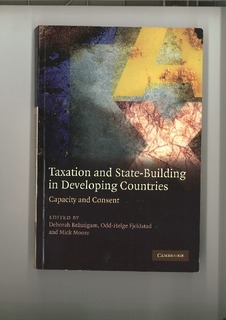Mass Taxation and State-Society Relations in East Africa
Chapter
Permanent lenke
http://hdl.handle.net/11250/2474955Utgivelsesdato
2008-01-01Metadata
Vis full innførselSamlinger
- Publications [1488]
Originalversjon
in Deborah Brautigam, Odd-Helge Fjeldstad and Mick Moore: Taxation and State Building in Developing Countries. Cambridge : Cambridge University Press pp. 114 - 134Sammendrag
Poll (‘head'''') tax has been the most common form of direct mass taxation in many sub-Saharan African countries since colonial times. Until very recently it was a dominant source of revenue for local governments. It has been a source of tension and conflict between state authorities and rural people from the colonial period until today, and a major catalyst for many rural rebellions. By tracing the history of poll taxes in Tanzania and Uganda, the chapter examines how these taxes have impacted on state-society relations and why it has taken so long to abolish them. The authors'''' argue that insofar as poll taxes have contributed to democratization, this is not through the processes of state-society revenue bargaining, but by mobilizing rural people politically to combat a tax practice that they have experienced as repressive. As a result, the resentments caused by coercive local taxation have led central governments to abolish it.
